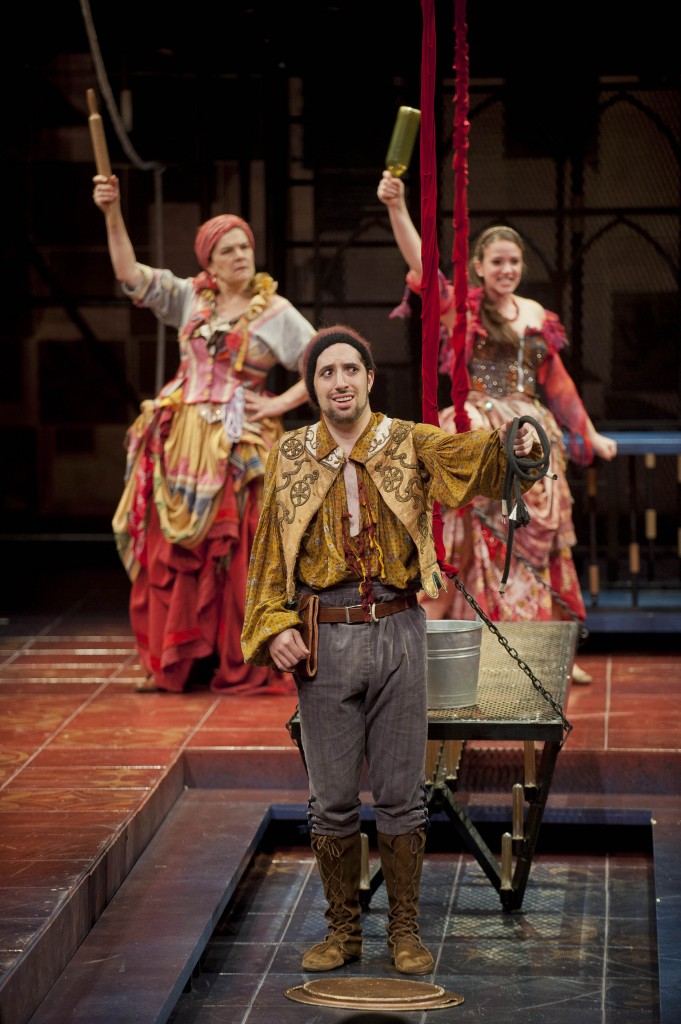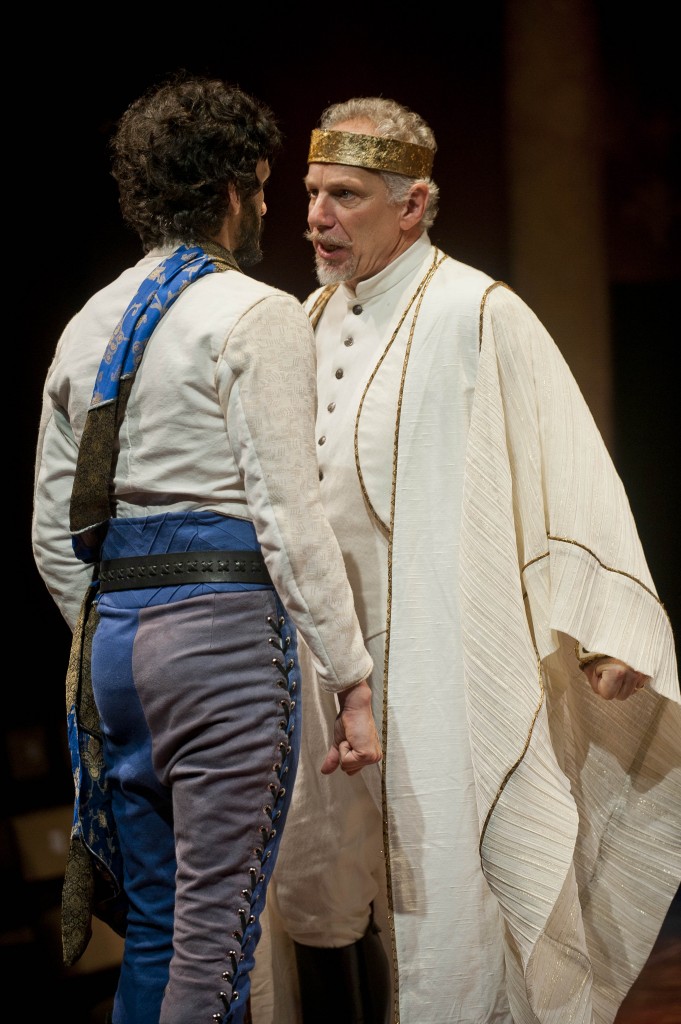Some Ups and Downs in this Shakespeare Classic
In one of the riotous interludes of Shakespeare’s Henry IV plays, the rascally, rotund knight Sir John Falstaff calls the innkeeper Mistress Quickly an otter because she is neither “fish nor flesh, a man knows not where to have her.” So it is with Jonathan Epstein’s one-evening adaptation of the two parts of Henry for Shakespeare and Company in Lenox, Mass. There are scenes of genuine passion, intensity, and humor in the staging by Epstein, who also plays the title role, but there are almost as many forced moments where the director’s hand is more evident than the connection between the characters or the Bard’s themes of father-son bonds and balancing humanity with the demands of leadership.

Epstein has also mixed modern elements with the Elizabethan milieu. Arthur Oliver’s costumes are a weird hybrid of contemporary fashion and period clothes, and Prince Hal and his Eastcheap pals are arrayed in circus-like outfits as if they were in a road company of Pippin. Vital information is conveyed by iPhones and laptops, while battles are fought with swords and modern revolvers. The director notes in the program that in Shakespeare’s day technologies and costumes from different eras were blended (Roman plays such as Titus Andronicus featured doublets and togas), but the bizarre melding of epochs leads to confusion. If the battling armies have guns, why not just use them instead of inefficiently hacking each other up? I would have preferred going all the way into today’s world and the production making a strong statement about the devious, manipulative nature of power being just as true in our corporate, social-media driven times as it was centuries ago.
This mismatching leads to one of too many sore-thumb moments: the fiery Hotspur shooting his computer at the conclusion of the scene with his equally hot-tempered lady. The action made no sense. Apparently he does so in frustration at the machine’s constant interruptions, but that was not conveyed by the actor (an otherwise fine Timothy Adam Venable) or the direction.
On the plus side, Epstein establishes a strong link with Henry Clarke’s complex Prince Hal, the king’s rebellious son. Their final deathbed confrontation is truly moving as the dying monarch passes on words of affection along with advice on ruling England by distraction in foreign wars—talk about relevance to today’s political scene. The athletic Clarke spiritedly puts across Hal’s youthful exuberance as well as his calculating machinations to use Falstaff and his cronies to advance his reputation once he has shunned them. Malcolm Ingram makes for a jolly and entertaining Falstaff, particularly when leading the audience in a “catechism” on the foolishness of honor on the battlefield.

There are also valuable contributions from Robert Lohbauer’s precise Lord Chief Justice and Ariel Block’s boisterous Mistress Quickly. The most affecting sequence in the production involves Ingram, Block as Justice Silence, and Kevin G. Coleman as Justice Shallow. All three as elderly compatriots attempt a merry dance from their youth. As they clumsily and comically execute the steps, we see a trio attempt to briefly recapture the joy of their earlier revels and note the cruelty of passing time. The reigns of both Henrys (father and son), Hotspur’s meteoric rise and fall, Falstaff’s mad carousing—all will pass in a blink, and this short dance encapsulates this speed of that passing. It’s a moving, funny, and sad moment. If only there had been more like it in this uneven production.
Henry IV: Parts I and II. Now – August 31. Shakespeare & Company at Tina Packer Playhouse, 70 Kemble St., Lenox, Mass. Repertory schedule. Running time 3 hours, including intermission. $19.50–74.50. (413) 637-3353. www.shakespeare.org
David’s reviews of these productions are also appearing on ArtsinNY.com and onTheaterLife.com.
